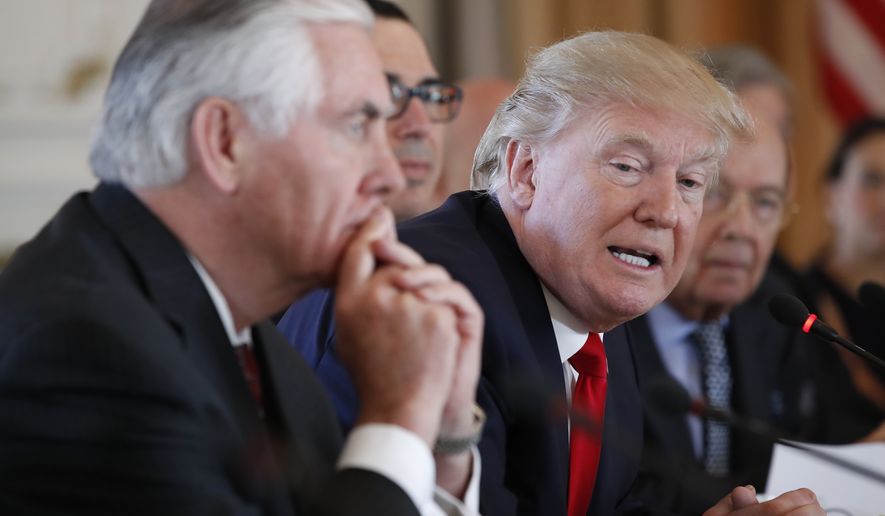President Trump pushed back Friday against South Korea’s objections to paying for a U.S.-deployed missile defense system, insisting that it’s “appropriate” for Seoul to shoulder the $1 billion cost.
“Why should we pay for it?” Mr. Trump said in an exclusive interview with The Washington Times. “It’s a phenomenal protective system, best in the world by far, and that’s meant to protect South Korea. So I respectfully say that I think it would be appropriate if they paid for it.”
The U.S. military is deploying the missile shield as a defense against North Korea. The South Korean defense ministry said it has no plans to pay for the system, and South Korea’s leading presidential candidate Friday called Mr. Trump’s demand an “impossible option.”
In a wide-ranging interview in the Oval Office as he approaches his 100th day in office on Saturday, Mr. Trump said he feels the “tremendous weight” of the presidency in grappling with national-security challenges such as “the potential of seriously having to counteract North Korea.”
The White House held a closed-door briefing this week for senators on the “grave” threat posed by North Korea. Mr. Trump said he’s still hopeful that his warm relationship with Chinese President Xi Jinping will bring force Pyongyang through economic and diplomatic pressure to abandon its ballistic missile and nuclear-weapons programs, without the need for U.S. military action.
“Tremendous pressure’s being put on,” Mr. Trump said. “Now, I don’t know that China has the kind of control [over North Korea] that some people think. And some people think they have very little control. You know, they’ve had many wars with Korea. This isn’t easy for China. But he [Mr. Xi] is a great guy, he’s a highly respected person, somebody I really, really like, and I believe he’s trying.”
Mr. Trump is also calling for a renegotiation of the U.S.-Korea Free Trade Agreement, known as Korus, which will enter a review period next week allowing for a renegotiated pact or possible withdrawal. The current version took effect in March 2012 under the Obama administration.
“It’s been a very bad deal for the United States, negotiated by [former Secretary of State] Hillary Clinton,” Mr. Trump said.
• Dave Boyer can be reached at dboyer@washingtontimes.com.




Please read our comment policy before commenting.